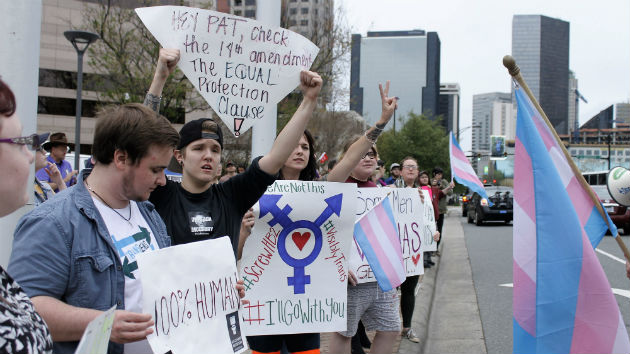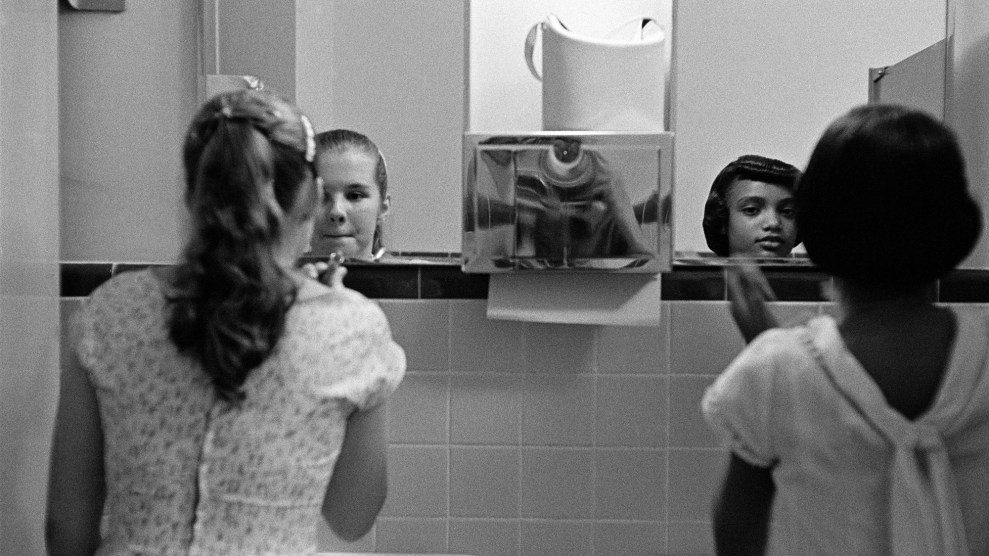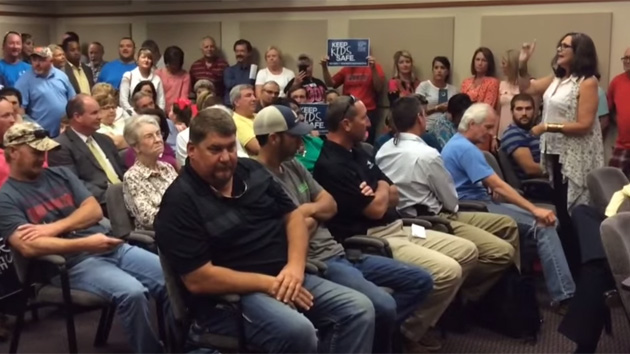A video posted by a Connecticut woman named Aimee Toms is making headlines, after she says a stranger verbally attacked her inside a Walmart bathroom on Friday after mistaking her for being transgender.
Toms, who identifies as cisgender—a term for people who identify with the sex they were assigned at birth—said she was washing her hands, when the woman called her “disgusting” and attempted to order her out of bathroom, the Connecticut Post reports.
Confused by the sudden harsh words directed at her, Toms insisted that in fact she did belong there.
“At first I was like, ‘Does she think I work in a different store and I shouldn’t be in this bathroom?'” Toms explains in the video. “So I said ‘Yes, I do.'”
Toms was wearing a baseball cap and initially gave the woman the benefit of the doubt. But she says that when she turned around and showed that she is “not a flat chested person,” the woman responded by raising her middle finger at Toms, before storming out of the bathroom. It was then Toms realized that she had likely been discriminated against because of her short haircut and had just experienced an encounter that was part of the ongoing controversy over bathroom legislation that seeks to force people to use the bathroom that aligns with their birth gender.
Toms reveals that last year, before so-called bathroom laws became prevalent, a man followed her into a women’s bathroom and sexually assaulted her. “This law was not in place a year ago, when I almost got raped in a bathroom because a man followed me into the woman’s room,” she said.
“There was no transgender bathroom law that was telling him to sexually assault me—he just did it because he was an awful person and he wanted to violate someone.”
In addition to highlighting harassment against those in the transgender community, Tom’s experience also captures some of the same anxieties felt by cisgender people whose appearance may not conform to conventional ideas of what a man or woman should look like—fears that have heightened against the backdrop of the national debate over bathroom bills.
“What these ‘bathroom bills’ are actually about is enforcing traditional gender codes and norms in an increasingly diverse and shifting America,” Sally Kohn recently wrote in an editorial for TIME. “Single-sex restrooms just like single-sex dormitories have always been rooted in compulsory heteronormativity and the sense that we have to protect women from men who can’t expect to be reigned in.”
Toms now has her own perspective on this issue: “After experiencing the discrimination they face firsthand, I cannot fathom the discrimination transgender people must face in a lifetime. Can you imagine going out every day and having people tell you you should not be who you are or that people will not accept you as who you are?”

















